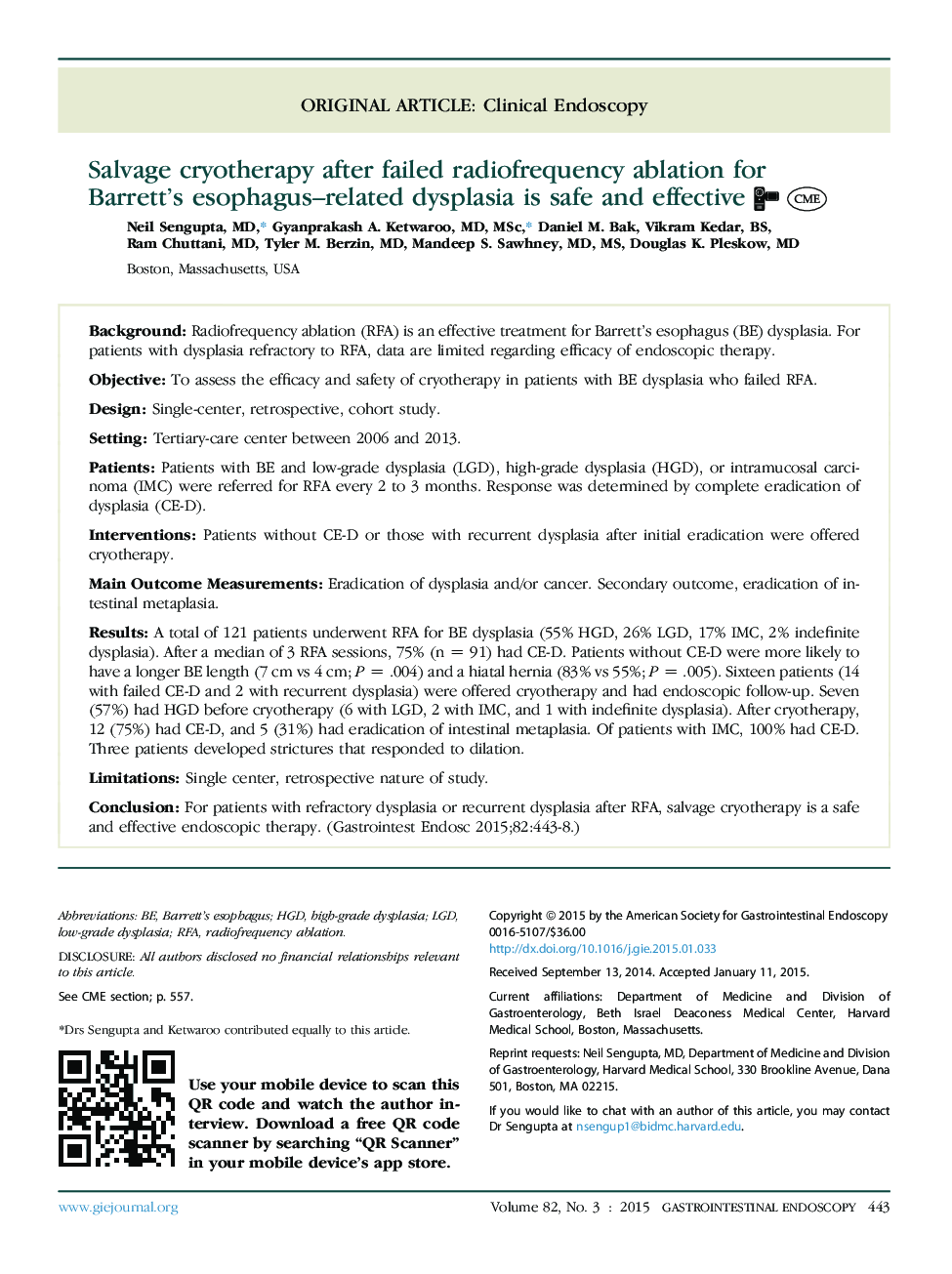| Article ID | Journal | Published Year | Pages | File Type |
|---|---|---|---|---|
| 3302202 | Gastrointestinal Endoscopy | 2015 | 6 Pages |
BackgroundRadiofrequency ablation (RFA) is an effective treatment for Barrett’s esophagus (BE) dysplasia. For patients with dysplasia refractory to RFA, data are limited regarding efficacy of endoscopic therapy.ObjectiveTo assess the efficacy and safety of cryotherapy in patients with BE dysplasia who failed RFA.DesignSingle-center, retrospective, cohort study.SettingTertiary-care center between 2006 and 2013.PatientsPatients with BE and low-grade dysplasia (LGD), high-grade dysplasia (HGD), or intramucosal carcinoma (IMC) were referred for RFA every 2 to 3 months. Response was determined by complete eradication of dysplasia (CE-D).InterventionsPatients without CE-D or those with recurrent dysplasia after initial eradication were offered cryotherapy.Main Outcome MeasurementsEradication of dysplasia and/or cancer. Secondary outcome, eradication of intestinal metaplasia.ResultsA total of 121 patients underwent RFA for BE dysplasia (55% HGD, 26% LGD, 17% IMC, 2% indefinite dysplasia). After a median of 3 RFA sessions, 75% (n = 91) had CE-D. Patients without CE-D were more likely to have a longer BE length (7 cm vs 4 cm; P = .004) and a hiatal hernia (83% vs 55%; P = .005). Sixteen patients (14 with failed CE-D and 2 with recurrent dysplasia) were offered cryotherapy and had endoscopic follow-up. Seven (57%) had HGD before cryotherapy (6 with LGD, 2 with IMC, and 1 with indefinite dysplasia). After cryotherapy, 12 (75%) had CE-D, and 5 (31%) had eradication of intestinal metaplasia. Of patients with IMC, 100% had CE-D. Three patients developed strictures that responded to dilation.LimitationsSingle center, retrospective nature of study.ConclusionFor patients with refractory dysplasia or recurrent dysplasia after RFA, salvage cryotherapy is a safe and effective endoscopic therapy.
